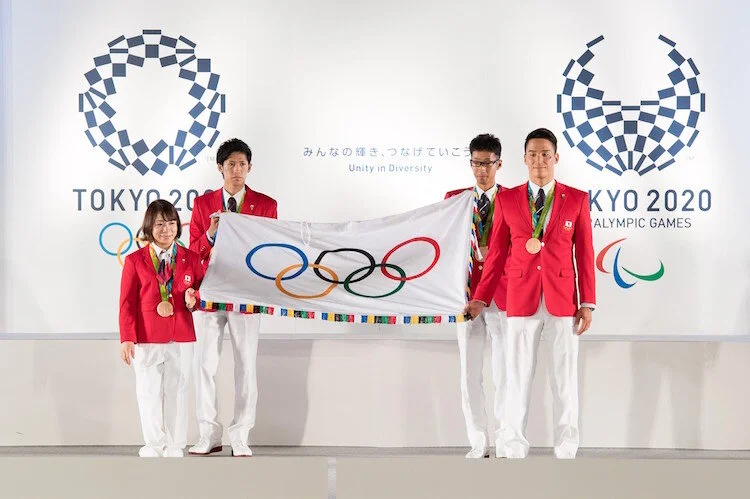‘Olympic Games in Japan and East Asia: Images and Legacies: An Introduction’
Image source: Tokyo 2020
An introduction to the special issue: 'The Olympic Games in Japan and East Asia: Images and Legacies', edited by Tomoko Tamari and Mike Featherstone.
Excerpt
In recent years global sporting events, such as the Olympic Games and the FIFA Football World Cup have attracted exhaustive media coverage which has helped dramatize the competition and encouraged a staged festive atmosphere. Such spectacular global megaevents can be increasingly understood as fitting well the logic of contemporary consumer capitalist societies, while at the same time stimulating nationalism and nation branding. More recently, this type of high-profile global event has increasingly become attractors for the social issues of the day, such as the concerns about environmentalism and the pursuit of elitism in sport and social life. The Olympic Games can in particular be seen as a site in which the complex processes of the interconnectedness between cultural values and contested political, national and economic interests are played out.
It is therefore, to be expected that the Olympic Games attracts a wide range of agendas. On the one hand, the games are often used as an opportunity to demonstrate the host nation/city’s political, economic and cultural prestige to the world, not only by constructing new infrastructures, event-related facilities and iconic architecture, but also by recreating cultural heritage narratives and reinventing the imaginary of the host nation. On the other hand, this type of urban development has led to a range of negative consequences, including gentrification and the displacements and exclusions of the local population. In addition, the Games make visible a range of political issues around national legacies and environmental issues of sustainability in the Olympic sites. (The issue around the New National Stadium for the Tokyo 2020 Olympics in the redevelopment of Meiji Jingu district is a good example.) Hence, the Olympics Games provides a great opportunity to investigate these transformations and open-up a broader range of questions which could be addressed through multi-disciplinary research.
Some responses to these questions were provided by the symposium on ‘London, Rio and Tokyo Olympics’ held at Goldsmiths, University of London, in June 2017. The symposium provided an intellectual platform to generate a dialogue between urban researchers, artists, activists, policy-makers and sociologists. Although the symposium made a significant contribution to the elucidation of various aspects of global mega events, the focus of this special issue is on the Olympics in Japan and the broader East Asia context. Earlier versions of the articles in this issue were presented at the symposium and have benefited greatly from the livery discussion. The authors in this issue were invited to rework their research findings to share with the wider readership of the International Journal of Japanese Sociology.



